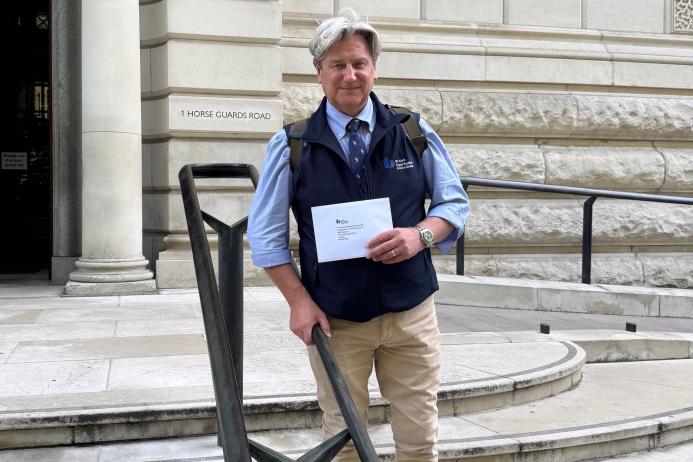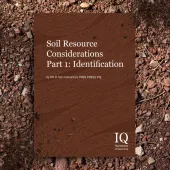BAA continues to drive industry response to Landfill Tax reform
British Aggregates Association reaffirms commitment to protecting the future of responsible quarrying
THE British Aggregates Association (BAA) has today reaffirmed its commitment to protecting the future of responsible quarrying by delivering a formal letter, in person, to HM Treasury, addressed to Chancellor Rachel Reeves, urging a re-evaluation of the Government’s proposed reforms to Landfill Tax.
Throughout the consultation process, the BAA says it has collaborated with other groups within the wider mineral extractive sector, to provide workable, evidence-based solutions that align with environmental goals, while ensuring lawful operators are not placed at any disadvantage.
At today’s meeting, the Treasury and HMRC confirmed that responses to the current consultation have reached ten times those of the previous consultation, reaching 401 in total, clearly demonstrating the industry’s commitment to get this right for the benefit of the whole UK economy.
At the heart of the BAA’s message is a warning that the current proposals risk undermining the industry’s ability to fulfil long-standing obligations to restore quarries to beneficial use and nature, while maintaining a workable circular economy.
For decades, quarry operators have worked within planning consents and environmental permits that require them to return sites to beneficial after-uses, including habitat creation, biodiversity improvement, public access, housing, and agriculture. These obligations reflect a deep commitment to land stewardship and sustainable land management, say the BAA.
The proposed removal of key tax exemptions, combined with a rushed transition to a single tax rate, would make site restoration financially unworkable in many cases, stalling environmental improvements and leaving landscapes unrestored.
Mike Phillips, chief executive officer of the BAA, said: ‘Restoration is simply not an optional extra. It is a legal and moral obligation embedded in every responsible quarrying operation. The proposed reforms place unnecessary and counterproductive barriers in the way of returning land to productive and ecological use.’
Whilst the minerals and mineral processing industry will feel a significant and direct impact, the BAA is warning that the ripple effect will be felt across all forms of construction in the UK. It says the reforms risk increasing costs and disrupting delivery for major infrastructure projects, house building – including affordable housing, roads, schools, hospitals, utilities, and local development.
At a time when the UK is seeking to unlock growth, investment, and regeneration, these proposals threaten to slow progress and increase the cost burden on businesses and taxpayers alike, says the Association.
‘This is absolutely not just a quarrying and minerals issue whether primary or secondary. Landfill Tax reform in its current form will send costs surging across the entire construction sector, with long-term consequences for economic growth, infrastructure delivery, and housing affordability,’ said Mr Phillips.
Key points raised by the BAA include:The loss of vital tax exemptions will jeopardize the restoration of permitted quarry sites
Disposal cost increases will undermine the reuse of secondary aggregates and push up costs
The proposed short transition period is simply unworkable and unrealistic, especially for long-term, consented operations
This will impose an impending risk of rising fly tipping and illegal waste activity due to unsustainable disposal costs
The policies create a clear failure to align tax policy with environmental, planning, and infrastructure goals, which the Government has long established.
The BAA has taken a proactive and collaborative approach to the consultation, including:
Three face-to-face and four online meetings with HM Treasury and HMRC
The submission of a detailed and evidence-based response
The provision of practical, balanced solutions to support reform without harming compliance
Provided the Treasury with real-life examples of the potential impact on existing operations and risk to jobs.
Mike Phillips concluded: ‘We remain fully committed to working with the Government and its regulators to get this right, and we believe a fair, phased, and proportionate approach is possible – one that supports environmental progress without compromising lawful operators, construction delivery, or the UK’s economic recovery.’










